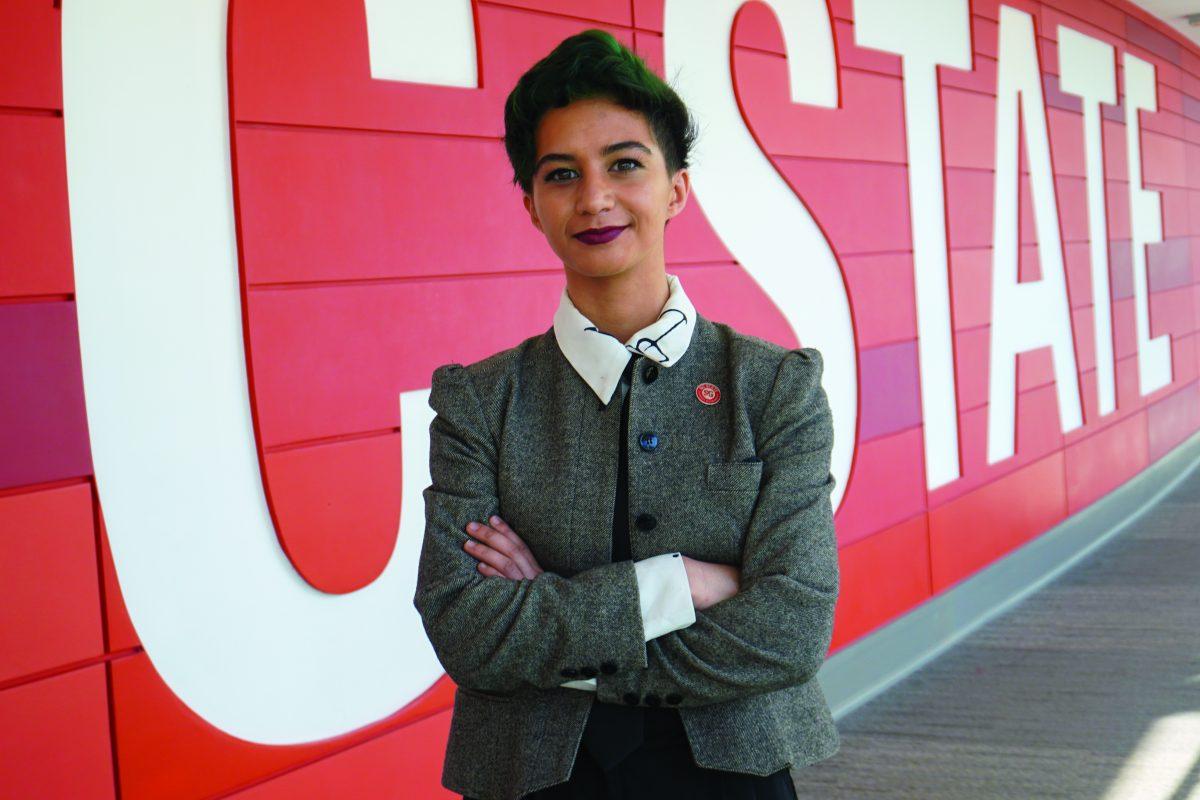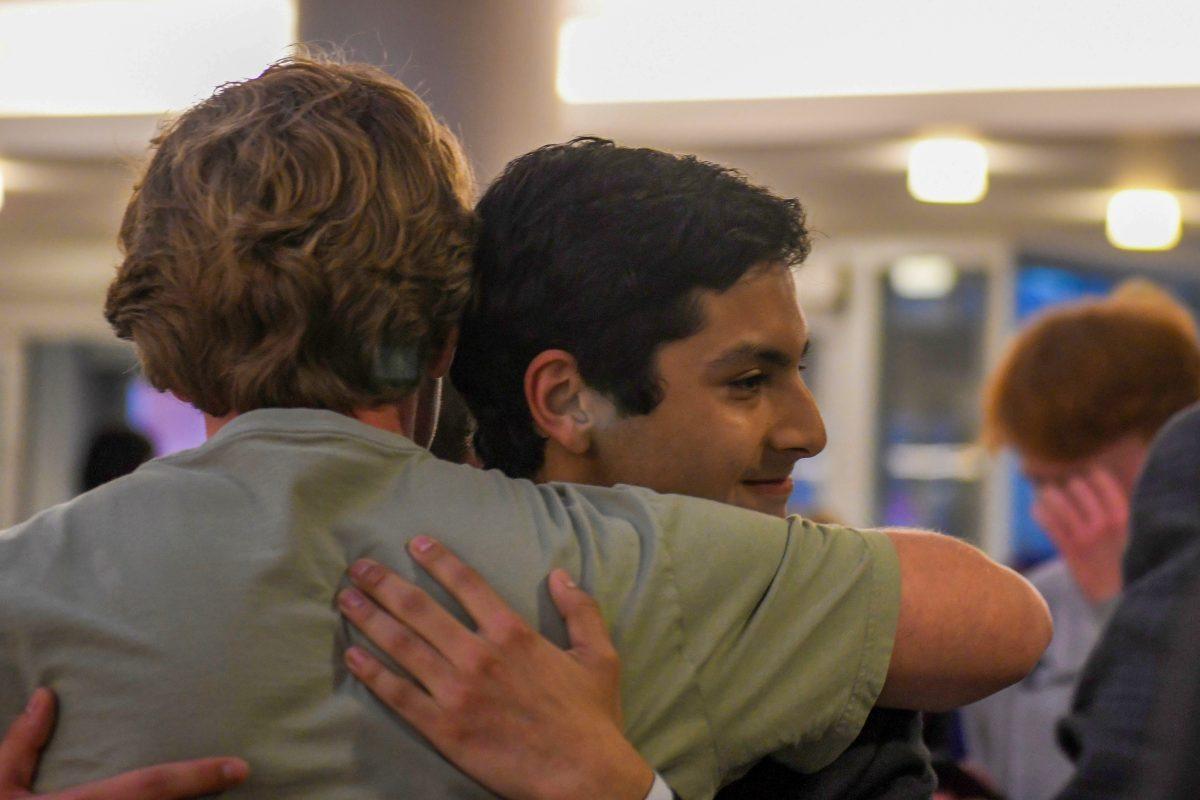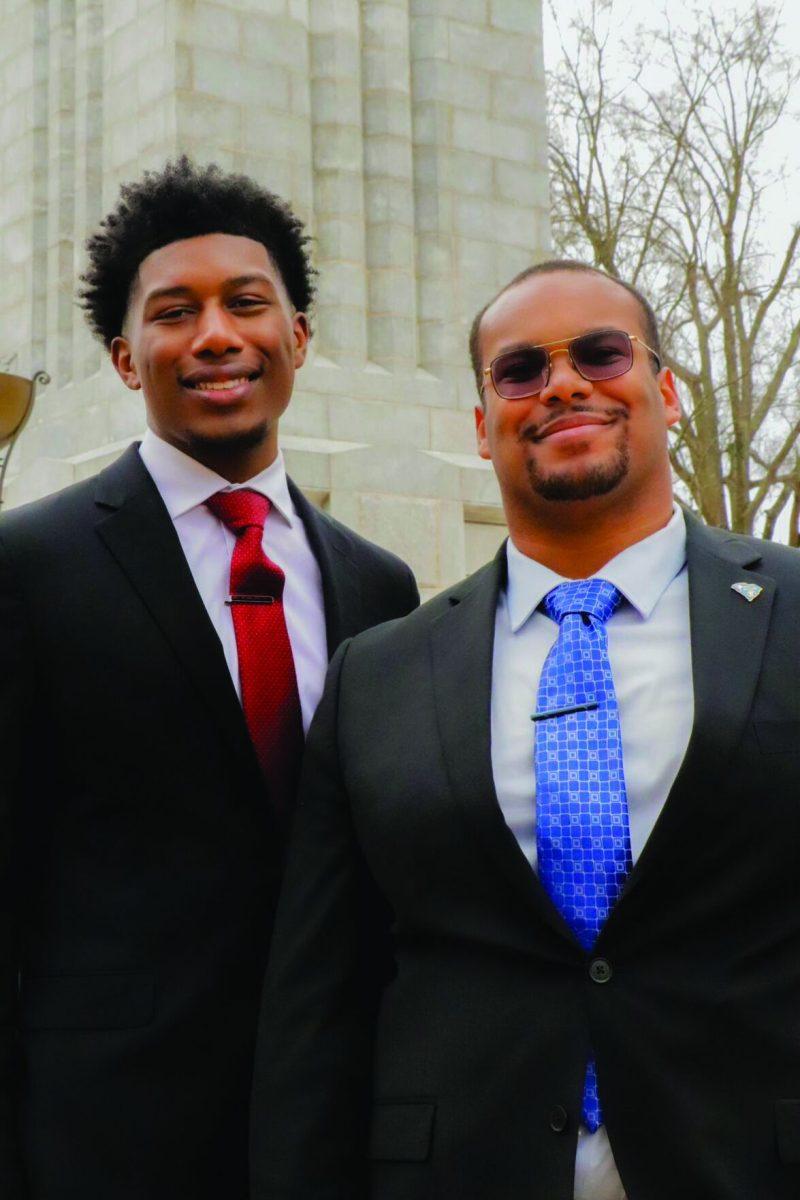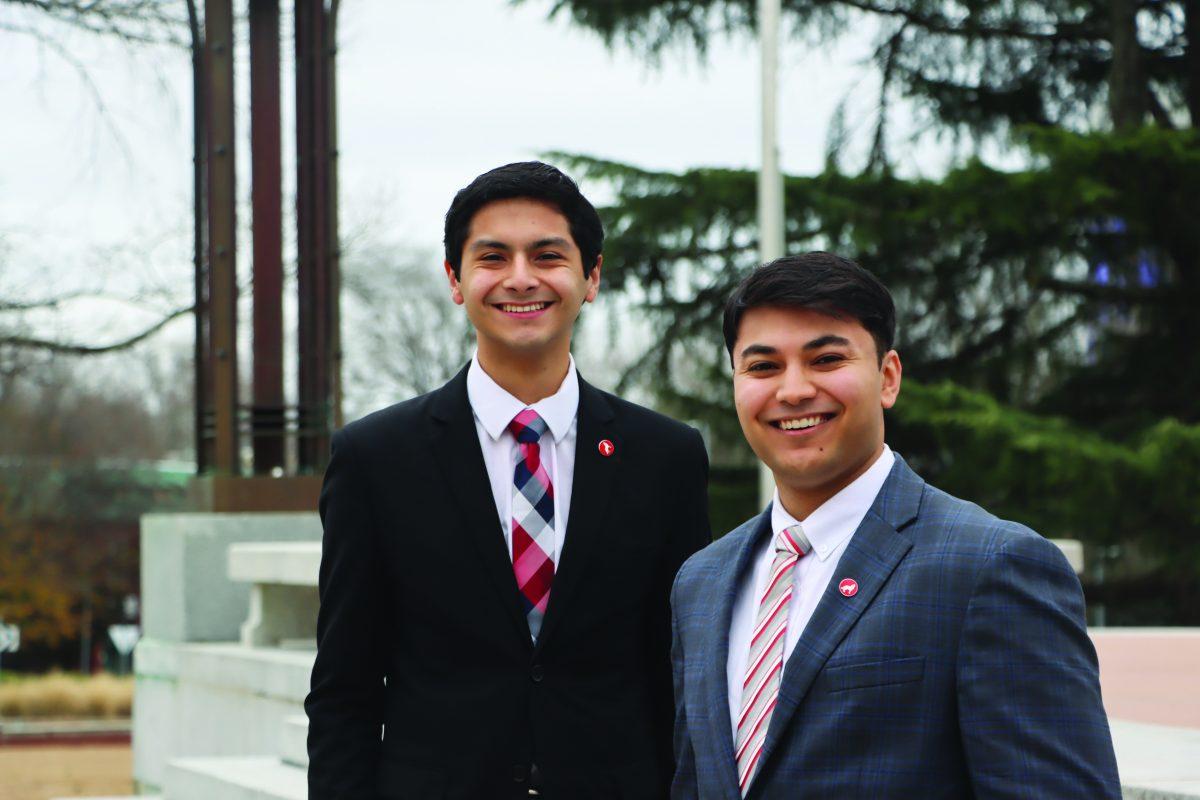In response to potential restrictions on student protests by the UNC Board of Governors, NC State’s Student Senate has introduced Resolution 97, aimed at safeguarding students’ First Amendment rights across the UNC System.
The resolution, introduced in the first senate meeting of the spring semester but not yet voted on, comes after discussions at the November Board of Governors meeting about implementing new policies for campus gatherings and protests.
Naila Din, a third-year studying microbiology and a sponsor of the resolution, said some proposed changes include “requiring prior notice for gathering, restrict gathering within 50 feet of a classroom entrance and regulate overnight camping.”
Caroline Miranda, a third-year studying science, technology and society, Student Senate president and the corresponding sponsor of R97, emphasized the historical importance of student protests.
“There’s just so much historical evidence in the library of how student movements on NC State’s campus have been impactful,” Miranda said. “Even our own student government has organized protests for South Africa’s apartheid.”
The resolution cites several landmark Supreme Court cases affirming students’ rights to free speech and assembly on college campuses. It also references the University of Chicago’s Kalven Committee Report, which emphasizes the importance of institutional neutrality to foster open dialogue.
“The neutrality as an institution is its cause, its complement for the fullest freedom of its faculty and students as individuals to participate in political action and social protest,” Miranda quoted from the report.
R97 also highlights recent affirmations of free speech rights by various UNC System institutions, including NC State’s Board of Trustees resolution passed in April 2024.
Maddie Watts, a fourth-year studying political science and a sponsor of the resolution, previously co-authored a bill supporting the adoption of the Chicago principles at NC State. She said the role of student movements in democracy is crucial.
“Student movements have provided some of the most meaningful change in our democracy throughout our history,” Watts said. “Students’ abilities to express their opinions, express their freedom of speech — this is the fundamental part of our democracy that we need to be upheld.”
The resolution calls on all 17 UNC System institutions to ensure the safety and protection of students exercising their First Amendment rights. It also urges the Board of Governors to safeguard these rights without attempting to limit them.
Chloe Webster, a first-year studying political science and a sponsor of the resolution, said protecting students’ right to free speech and protest is necessary for student advocacy.
“Having that freedom to advocate for themselves was essential to the University environment and maintaining neutrality within an institution,” Webster said. “And being in student government, we’re an advocacy body … it’s not just that we get to advocate for [students], we get to help them advocate for themselves.”
The sponsors emphasized that R97 is not just about student rights but also impacts faculty and staff. Jodie Roberson, a fourth-year Ph.D. student and a sponsor of the resolution, highlighted the importance of academic freedom in the classroom.
“We teach things that may seem [like] they could become contentious things, but it’s important that we’re able to speak about them,” Roberson said.
The resolution was initially passed unanimously by the UNC Association of Student Governments in November. Din said this demonstrates system-wide student support for protecting free speech rights.
“Every student government across the UNC System, all the students are so passionate about this legislation about supporting students’ individual rights to free speech and organizing and protesting,” Din said.
Miranda said there is a need for clear communication and transparency rather than the blanket restrictions the Board of Governors is looking for in response to what they see as potential safety concerns in protests.
“I think that there probably just needs to be better communication and more transparency about what are the policies, and coming to a mutual understanding is part of this,” Miranda said. “ … Students are going to assemble and protest regardless of restrictions, frankly, so making sure that students are able to do that properly and safely.”
Miranda said they had shared the ASG version of the resolution with Chancellor Randy Woodson, who acknowledged its relevance to ongoing discussions.
R97 is scheduled for its second reading next week, pending approval by the Student Affairs Committee. The sponsors anticipate strong support from their fellow senators, given the unanimous backing at the ASG level.
As the next Board of Governors meeting approaches at the end of January, the Student Senate aims to pass R97 quickly to demonstrate united student opposition to any potential restrictions on free speech and assembly rights.
Miranda said it is important for students to be aware of their rights and the ongoing efforts to protect them.
“It’s already been shown to some administration folks and that type of thing,” Miranda said. “But I think the really big piece, the second big piece of this, is student body awareness.”













